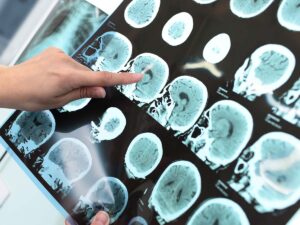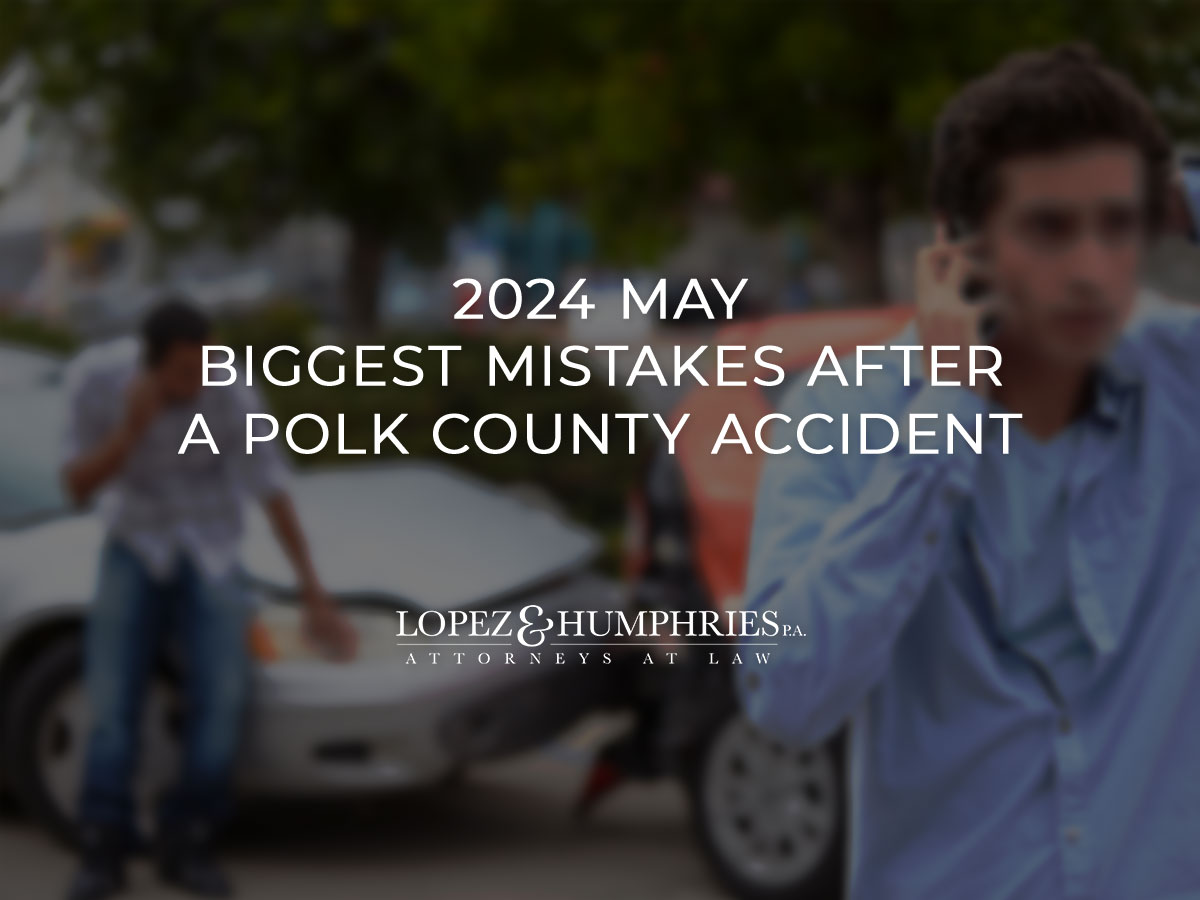In personal injury claims involving brain damage, the role of medical experts is indispensable. These professionals, with their specialized knowledge in areas such as severe Traumatic Brain Injury (TBI), brain stem reflexes, and intensive care, provide critical insights into the cause and initial severity of the damage. They are pivotal in determining whether an individual is in a coma or has experienced brain death.
Different types of medical experts may be involved, depending on the specifics of each case. Their expertise is crucial for accurately assessing and documenting brain damage, which ultimately influences adult recovery prospects.
It’s essential to note that potential loss or mean min can vary significantly based on these evaluations.
The contribution of these medical experts underscores the complexity and importance of accurately assessing and documenting brain damage in personal injury claims.
Understanding the Significance of Brain Damage Assessment
Brain damage assessment plays a pivotal role in comprehending the severity and implications of an injury. Medical experts employ a comprehensive needs assessment process to evaluate the extent of brain damage. This evaluation is not merely about diagnosing an injury but also about understanding how it could affect a person’s life moving forward.
For instance, consider a situation where an individual sustains severe brain damage due to an accident. The medical expert will conduct several tests and analyses, such as neuroimaging scans, cognitive difficulties, and neurological examinations. These assessments help determine the magnitude of the damage and its potential impact on various aspects of the person’s life, including cognition, physical abilities, behavior, and emotional well-being.
The findings from these assessments serve multiple purposes:
- They provide valuable insights into the victim’s current state.
- They aid in predicting future challenges.
- They guide decision-making for treatment plans.
The role of medical experts extends beyond determining the immediate repercussions of brain damage. Their assessments also play a crucial role in foreseeing future care needs and costs.
Future Care Needs And Costs
One significant aspect under scrutiny during brain damage assessment is determining future care requirements. Based on their findings, medical experts can predict what kind of long-term care might be necessary for optimal recovery or management of symptoms. This could include rehabilitation therapy sessions, counseling services, or specialized equipment for daily living activities.
In addition to identifying these needs, they also estimate the associated costs. By factoring in variables such as treatment frequency, duration, and intensity along with cost-per-session or cost-of-equipment data available in healthcare databases, they generate a reasonably accurate prediction for future expenses.
This information becomes particularly relevant.
Quality Of Life Post-Injury
Lastly, assessing brain damage is crucial for understanding the impact on a victim’s quality of life post-injury. Brain damage can lead to significant changes in an individual’s cognitive and physical abilities, affecting their ability to work, interact socially, or even perform basic daily activities.
By conducting a thorough assessment, medical experts can provide a realistic view of how the injury might alter the victim’s lifestyle. They can also suggest coping strategies and modifications that help improve their quality of life despite the challenges posed by brain damage.
The Expertise of Neurologists and Neuropsychologists
Neurologists, with their extensive medical knowledge and expertise in neurology, play a pivotal role in diagnosing physical changes due to brain injury. They are the physicians who first assess the nature of the brain damage based on a clinical diagnosis. Their focus is often on identifying any structural abnormalities in the brain that could be causing considerable variability in a patient’s condition.
For example, they might look for signs of trauma, such as bleeding or swelling in the brain, using imaging tests like CT scans or MRIs. Neurologists may also conduct neurological exams to evaluate motor and sensory skills, balance and coordination, mental status, and changes in mood or behavior.
On the other hand, neuropsychologists contribute significantly to understanding the cognitive and behavioral effects of brain injuries. These professionals investigate how an injury affects a person’s ability to think, concentrate, remember things, or even alter their personality.
- They often use standardized tests to measure cognitive abilities.
- They can assess emotional well-being.
- They can help determine if symptoms may be related to psychogenic conditions rather than physical brain damage.
The combined input from neurologists and neuropsychologists is crucial for a comprehensive evaluation of brain damage. This collaborative approach ensures that all aspects of a patient’s condition are considered – from physical changes observed through clinical diagnosis to alterations in perceptions or behaviors linked with psychogenic disorders.
Furthermore:
- Their collective findings form a critical part of rehabilitation planning.
- They provide essential information for caregivers about what to expect during recovery.
- Their expert opinion can influence legal decisions related to personal injury claims by providing evidence-based assessments of a patient’s condition post-injury.
In essence:
- Neurologists bring their medical expertise to bear on identifying and documenting physical changes resulting from brain injuries.
- Neuropsychologists apply their specialized knowledge about how such injuries can impact mental, emotional, and behavioral health.
- Together, they provide a holistic view of the patient’s condition that is vital for planning care and rehabilitation.
Documenting Brain Damage: Medical Records and Reports
Accurate documentation is paramount regarding brain damage, as it lays the foundation for medical interventions and potential legal actions. Medical records and reports serve as critical evidence, capturing the extent of the injury and guiding both healthcare and judicial decisions.
Importance of Detailed Medical Records
 Medical records are the cornerstone of personal injury claims, especially in brain damage cases. These documents comprehensively account for the patient’s medical treatment, diagnosis, and disability. They adhere to stringent medical standards to ensure accuracy and reliability.
Medical records are the cornerstone of personal injury claims, especially in brain damage cases. These documents comprehensively account for the patient’s medical treatment, diagnosis, and disability. They adhere to stringent medical standards to ensure accuracy and reliability.
For instance, ancillary tests such as an apnea test might be included in the record to illustrate the severity of brain damage. The data from these tests is invaluable for substantiating claims and demonstrating the extent of impairment.
Moreover, these records must be detailed and accurate to avoid any potential allegations of malingering or feigning conditions for personal gain. This documentation level helps protect patients and healthcare providers from false accusations.
Reports Illustrating Extent, Impact
In addition to medical records, reports play a significant role in illustrating the extent and impact of brain damage on a patient’s life. These documents delve into specifics, unlike generic medical transcripts:
- Detailing adverse effects on daily living activities,
- Highlighting severe disabilities or handicaps,
- Explaining how organ donation may be affected by certain types of brain damage,
- Providing insight into future prognosis.
These reports provide tangible evidence during legal proceedings as they translate complex medical information into understandable terms for non-medical personnel involved.
Evidence During Legal Proceedings
The importance of these documents extends beyond their role in providing evidence during legal proceedings:
- They can help establish a timeline.
- They serve as proof of the proper medical care received.
- They can demonstrate negligence, if applicable.
- They offer objective support for subjective symptoms like pain or cognitive impairment.
Expert Witness Testimony in Personal Injury Cases
Expert testimony plays a vital role in personal injury trials. The expert witness, often a medical professional with specialized knowledge, can significantly influence the jury’s understanding and perception of the case facts.
For instance, in injury claims resulting from car or road traffic accidents, the expert witness may be called upon to analyze the injuries sustained. These experts are responsible for assessing and documenting brain damage or other injuries.
Clarity in Complexity
One crucial aspect of their role lies in their ability to explain complex medical information simply and clearly.
In civil litigation involving personal injury cases:
- They distill complicated medical jargon into understandable language that jurors can comprehend.
- They use visual aids like diagrams or animations to illustrate injuries and their impact.
- They provide an objective trial summary based on the evidence presented.
This clarity is paramount, as it directly affects the plaintiff’s credibility and influences how the jury interprets the case facts.
Impact on Case Outcome
The potential impact of expert testimony on case outcomes must be considered. It is through credible testimony that they can sway decisions in favor of either party involved in personal injury claims.
Here are some ways this happens:
- Expert Reports: Detailed reports outlining the extent of injuries help establish liability.
- Testimony: Their verbal explanations during trials reinforce what’s detailed in these reports.
- Impartiality: Despite being hired by one side, they must remain unbiased – this impartiality lends weight to their testimonies.
In accident cases, for example, expert witnesses play a crucial role by providing an authoritative voice that validates claims made by plaintiffs or defendants.
Role Beyond Testimony
Beyond providing testimony, these experts also contribute significantly to various stages of litigation:
- Pre-trial: They assist personal injury lawyers by reviewing case materials and helping frame legal strategies.
- During Trial: They help attorneys understand opposing expert reports apart from testifying.
- Post-trial: They may help in the appeal process by reviewing trial transcripts for potential errors.
Challenges and Common Issues in Brain Damage Assessment
Assessing brain damage is a complex process, fraught with medical and diagnostic intricacies. Navigating these challenges is essential to ensuring an accurate evaluation, as misdiagnoses or overlooked symptoms can have profound implications for the patient’s recovery and well-being.
Varying Symptoms and Recovery
The brain is an intricate organ, with each injury differing significantly from another. This makes it challenging for medical experts to accurately determine brain death or assess brain activity.
For instance, two patients may experience similar injuries but display entirely different symptoms. One may show signs of cognitive impairment, while the other might present physical manifestations such as difficulty walking or talking. Recovery patterns can be equally unpredictable. While some patients might regain full brain function within a few weeks or months, others may require years of rehabilitation or never fully recover.
Incomplete or Inaccurate Initial Assessments
Another challenge lies in the immediate needs assessment stage in emergency settings. Due to the urgency and high-stress environment, initial assessments can sometimes be incomplete or inaccurate. In some cases, medical professionals might overlook subtle signs of brain damage due to more apparent injuries elsewhere on the body. Other times, they might misinterpret symptoms, leading to incorrect clinical assessments.
This could potentially delay appropriate treatment and hinder recovery efforts.
Invisible Injuries
Perhaps one of the most daunting challenges in brain damage assessment is dealing with invisible injuries – those that don’t show up on scans but have significant effects on cognition and daily functioning.
These are usually functional problems that affect how a person thinks, perceives, remembers, or learns. They’re not always evident immediately after an accident and can sometimes take days or even weeks to manifest.
Examples include:
- Memory loss
- Difficulty concentrating
- Changes in mood or behavior
- Sensitivity to light or noise
Despite their invisibility on standard imaging tests like CT scans or MRIs, these injuries can severely impact a person’s quality of life if left untreated.
Collaborating with Medical Experts for Stronger Claims
A multidisciplinary approach to personal injury claims involving brain damage can be a game-changer. The role of medical experts is pivotal in assessing and documenting the extent of brain damage.
It’s not just about the clinical examination by a single doctor but rather a collaborative effort involving various specialists.
- Neurologists are responsible for diagnosing and treating neurological disorders.
- Neuropsychologists to evaluate cognitive impairment
- Radiologists interpret imaging tests like MRIs or CT scans
- Psychiatrists to assess mental health impact post-injury
Each specialist brings their unique knowledge and expertise, contributing valuable insights into the patient’s condition. This collective input forms robust medical evidence that strengthens the claim. The credibility of a personal injury claim significantly hinges on comprehensive expert collaboration. Medical staff from different disciplines ensure all aspects of the patient’s condition are thoroughly examined and documented.
For instance, while neurologists might focus on physical symptoms such as headaches or seizures, psychiatrists could shed light on emotional distress or behavioral changes. Such a holistic assessment enhances credibility by leaving no room for dispute over the severity of brain damage. Moreover, research findings by these experts can provide additional support. They may reveal patterns or trends related to similar cases, lending more weight to the claimant’s claim.
Informed legal strategies are another outcome of this expert collaboration. Lawyers representing victims of brain injuries need accurate medical information to build solid cases. Detailed reports from hospital staff about patients’ conditions help lawyers understand the full implications of their client’s injuries.
For example:
- A lawyer can argue more convincingly for compensation if they know their client has lost particular cognitive abilities due to brain damage.
- Understanding prognosis helps lawyers anticipate future needs like rehabilitation or long-term care expenses.
- Knowledge about treatment options allows lawyers to demand adequate compensation covering all potential medical costs.
Finally, guidelines set by hospitals also play a crucial role. These guidelines, adhered to by all medical staff members, ensure uniformity in clinical examination procedures and documenting results.
The Role of Medical Experts in Assessing Brain Damage
In personal injury claims involving brain damage, the role of medical professionals is instrumental. They provide accurate assessments, thorough documentation, and authoritative testimonies that can significantly influence the outcome of a case.
However, it’s important to note that these processes are often fraught with challenges. Therefore, legal professionals must collaborate closely with neurologists and neuropsychologists to build a strong claim. Those involved in such cases must understand the intricacies of brain damage assessment and its impact on personal injury compensation. By doing so, they can ensure that their clients receive the compensation they deserve for their injuries.
Consult with López & Humphries, PA, for guidance and support in your brain damage-related personal injury claims. Our dedicated team is ready to assist you every step of the way. Contact us today for a free consultation!
Frequently Asked Questions
What is the role of a neurologist in assessing brain damage?
A neurologist is a medical expert who specializes in diagnosing and treating conditions affecting the nervous system, including brain injuries. In assessing brain damage, they perform various tests to determine the extent and nature of the injury.
How does a neuropsychologist contribute to documenting brain damage?
A neuropsychologist contributes by conducting cognitive tests and interpreting their results, which help understand how a person's thinking abilities have been affected by their brain injury.
What are some common issues encountered when assessing brain damage?
Some common issues include determining causation (whether an accident caused specific symptoms), differentiating pre-existing conditions from accident-related injuries, and dealing with incomplete or inconsistent medical records.
Why is expert witness testimony important in personal injury cases involving brain damage?
Expert witness testimony provides objective evidence about the severity and implications of a patient's condition, which can significantly influence how much compensation they may receive.
How do lawyers collaborate with medical experts when handling personal injury claims involving brain damage?
Lawyers work closely with medical experts by consulting them for their professional opinion, using their assessments to build a case, and potentially having them testify in court as an expert witnesses.










